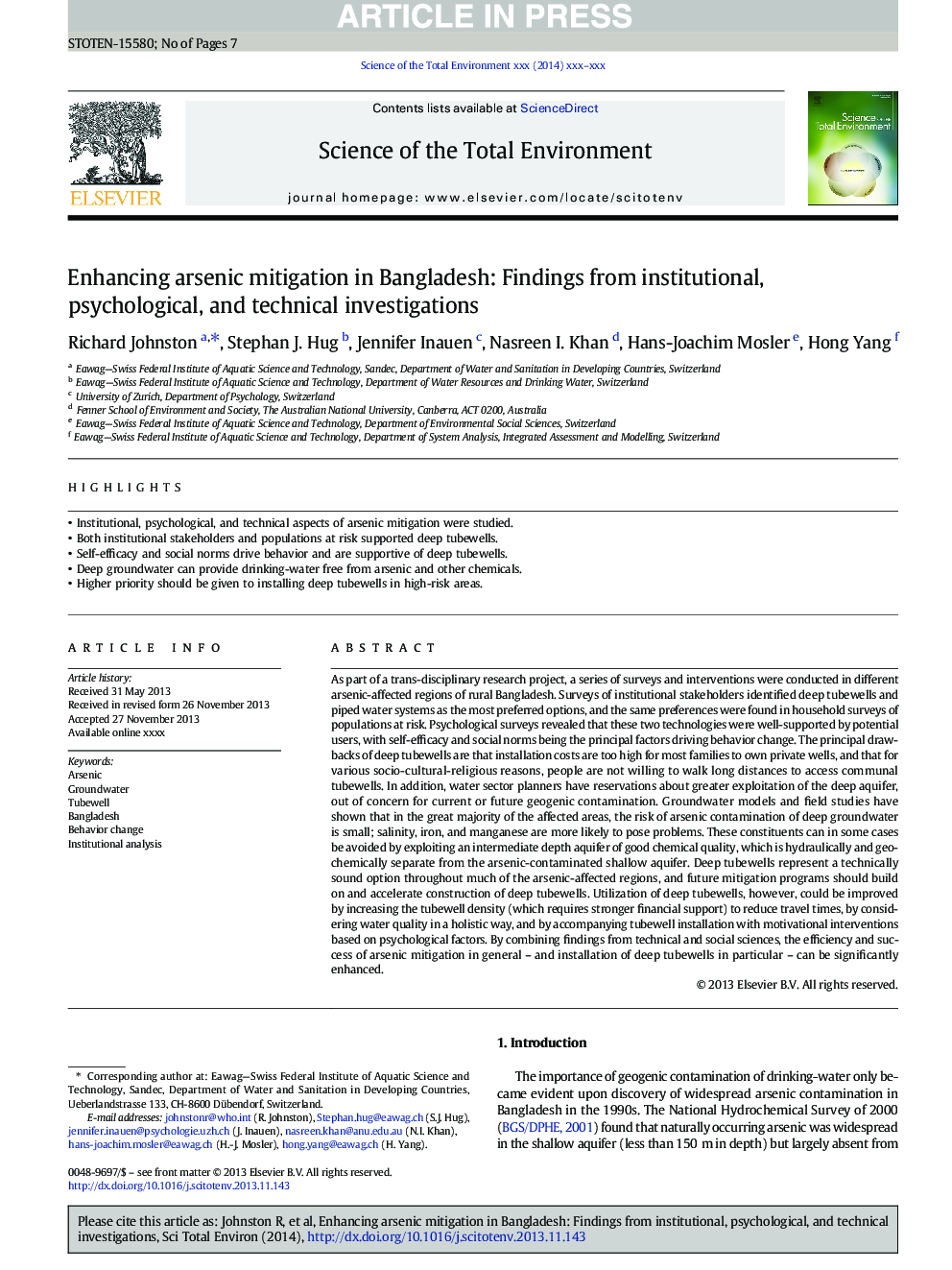| کد مقاله | کد نشریه | سال انتشار | مقاله انگلیسی | نسخه تمام متن |
|---|---|---|---|---|
| 6330254 | 1619781 | 2014 | 7 صفحه PDF | دانلود رایگان |
عنوان انگلیسی مقاله ISI
Enhancing arsenic mitigation in Bangladesh: Findings from institutional, psychological, and technical investigations
ترجمه فارسی عنوان
تقویت کاهش آرسنیک در بنگلادش: یافته های تحقیقات نهادی، روانشناختی و فنی
دانلود مقاله + سفارش ترجمه
دانلود مقاله ISI انگلیسی
رایگان برای ایرانیان
کلمات کلیدی
موضوعات مرتبط
علوم زیستی و بیوفناوری
علوم محیط زیست
شیمی زیست محیطی
چکیده انگلیسی
As part of a trans-disciplinary research project, a series of surveys and interventions were conducted in different arsenic-affected regions of rural Bangladesh. Surveys of institutional stakeholders identified deep tubewells and piped water systems as the most preferred options, and the same preferences were found in household surveys of populations at risk. Psychological surveys revealed that these two technologies were well-supported by potential users, with self-efficacy and social norms being the principal factors driving behavior change. The principal drawbacks of deep tubewells are that installation costs are too high for most families to own private wells, and that for various socio-cultural-religious reasons, people are not willing to walk long distances to access communal tubewells. In addition, water sector planners have reservations about greater exploitation of the deep aquifer, out of concern for current or future geogenic contamination. Groundwater models and field studies have shown that in the great majority of the affected areas, the risk of arsenic contamination of deep groundwater is small; salinity, iron, and manganese are more likely to pose problems. These constituents can in some cases be avoided by exploiting an intermediate depth aquifer of good chemical quality, which is hydraulically and geochemically separate from the arsenic-contaminated shallow aquifer. Deep tubewells represent a technically sound option throughout much of the arsenic-affected regions, and future mitigation programs should build on and accelerate construction of deep tubewells. Utilization of deep tubewells, however, could be improved by increasing the tubewell density (which requires stronger financial support) to reduce travel times, by considering water quality in a holistic way, and by accompanying tubewell installation with motivational interventions based on psychological factors. By combining findings from technical and social sciences, the efficiency and success of arsenic mitigation in general - and installation of deep tubewells in particular - can be significantly enhanced.
ناشر
Database: Elsevier - ScienceDirect (ساینس دایرکت)
Journal: Science of The Total Environment - Volumes 488â489, 1 August 2014, Pages 477-483
Journal: Science of The Total Environment - Volumes 488â489, 1 August 2014, Pages 477-483
نویسندگان
Richard Johnston, Stephan J. Hug, Jennifer Inauen, Nasreen I. Khan, Hans-Joachim Mosler, Hong Yang,
